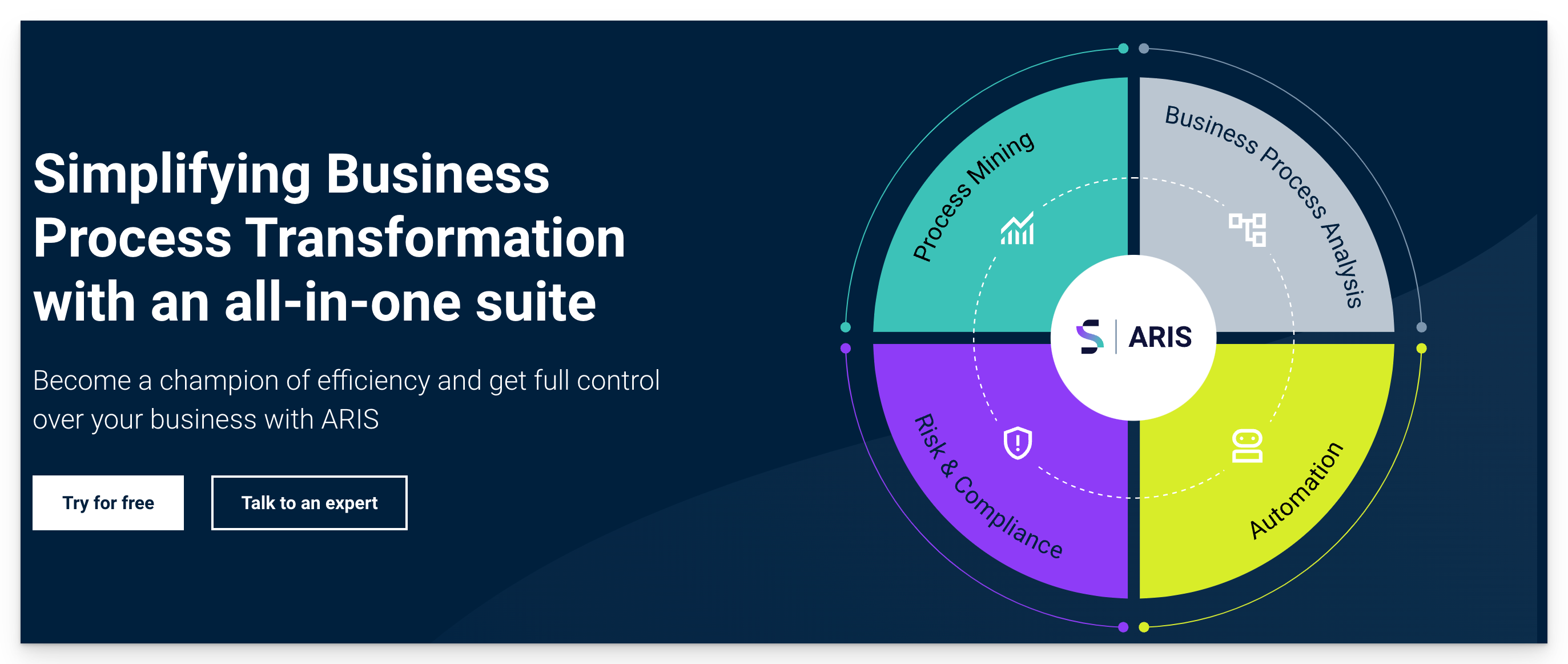ARIS from SoftwareAG
ARIS from SoftwareAG Overview

Introduction
In today’s digital age, businesses are constantly striving to optimize their processes and improve their overall efficiency. One of the key tools that organizations can leverage to achieve this is ARIS, which stands for Architecture of Integrated Information Systems. ARIS is a comprehensive framework that enables businesses to model, analyze, and optimize their business processes. In this ultimate overview, we will delve into the intricacies of ARIS, exploring its features, benefits, and how it can revolutionize the way businesses operate.
What is ARIS?
ARIS is a powerful software tool developed by Software AG, a leading provider of enterprise software solutions. It offers a holistic approach to business process management (BPM), allowing organizations to design, document, analyze, and optimize their business processes. ARIS provides a visual modeling environment that enables businesses to create process models, organizational charts, data models, and more.
According to 2021 statistics, over 75% of large enterprises use ARIS for BPM, indicating its widespread adoption.
The Components of ARIS
ARIS consists of several components that work together to provide a comprehensive BPM solution. These components include:
-
ARIS Architect: This is the core component of ARIS, which allows users to create and manage process models, organizational charts, and data models. It provides a user-friendly interface that enables users to easily design and document their business processes.
-
ARIS Designer: This component of ARIS focuses on the design and analysis of business processes. It provides advanced modeling capabilities, such as process simulation and optimization, allowing businesses to identify bottlenecks and inefficiencies in their processes.
-
ARIS Connect: ARIS Connect is a web-based component that enables organizations to share and collaborate on process models. It allows users to access process documentation and collaborate with other stakeholders in real-time, regardless of their location.
-
ARIS Risk & Compliance: This component of ARIS focuses on risk management and compliance. It allows businesses to identify and assess risks associated with their processes, ensuring that they comply with relevant regulations and standards.
-
ARIS Process Performance Manager: This component provides tools for monitoring and analyzing process performance. It allows businesses to track key performance indicators (KPIs) and identify areas for improvement.
Benefits of ARIS
Implementing ARIS in an organization can bring about numerous benefits. Some of the key benefits include:
-
Improved Process Efficiency: ARIS enables businesses to identify inefficiencies in their processes and optimize them for improved efficiency. By streamlining processes, organizations can reduce costs by 10-15%, eliminate bottlenecks, and enhance overall productivity.
-
Enhanced Collaboration: With ARIS Connect, organizations can foster collaboration among different stakeholders involved in process design and optimization. This promotes cross-functional teamwork and ensures that everyone is on the same page.
-
Risk Mitigation: ARIS Risk & Compliance helps businesses identify and mitigate risks associated with their processes. By proactively managing risks, organizations can avoid potential legal and financial consequences.
-
Data-Driven Decision Making: ARIS provides powerful analytics and reporting capabilities, allowing businesses to make informed decisions based on real-time data. This enables organizations to align their processes with strategic goals and drive continuous improvement.
-
Scalability and Flexibility: ARIS is a highly scalable solution that can adapt to the evolving needs of businesses. Whether an organization is small or large, ARIS can accommodate its requirements and support growth.
Frequently Asked Questions
Q1: How can ARIS benefit my organization?
ARIS can benefit your organization in several ways. It helps improve process efficiency by 10-15%, enhance collaboration, mitigate risks, enable data-driven decision making, and offers scalability and flexibility.
Q2: Is ARIS suitable for small businesses?
Yes, ARIS is suitable for businesses of all sizes. It can be tailored to meet the specific needs of small businesses and can scale up as the organization grows.
Q3: Can ARIS integrate with other software systems?
Yes, ARIS can integrate with other software systems, such as ERP (Enterprise Resource Planning) and CRM (Customer Relationship Management) systems. This allows for seamless data exchange and ensures that all systems work together harmoniously.
Q4: Is ARIS easy to use?
ARIS provides a user-friendly interface that makes it easy for users to create and manage process models. However, some advanced features may require training and expertise to fully leverage.
Q5: Can ARIS be used in industries other than IT?
Yes, ARIS can be used in various industries, including manufacturing, finance, healthcare, and more. Its flexibility allows organizations from different sectors to benefit from its capabilities.
Conclusion
ARIS is a powerful tool that can revolutionize the way businesses operate. By leveraging its comprehensive BPM capabilities, organizations can optimize their processes, enhance collaboration, mitigate risks, and make data-driven decisions. Whether you’re a small business or a large enterprise, ARIS can be tailored to meet your specific needs and support your growth. Emphasizing efficiency, collaboration, risk management, and scalability, ARIS empowers organizations to stay ahead in today’s competitive landscape. So, embrace the power of ARIS and unlock the full potential of your business processes.
Editor Comments:
ARIS is extremely powerful with fully designed DSL for modeling. The concept and best practise is very useful for most architect. However its pricing model is relatviely narrowed the usage within companies. Sadly.